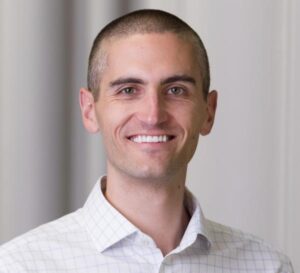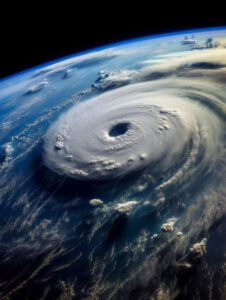City College welcomed its newest professor of earth and atmospheric sciences Dr. Spencer Hill, where he has the opportunity to connect his research on understanding large-scale weather patterns with real-world impacts on New Yorkers.
Hill specializes in research on tropical overturning circulations, with a special interest in monsoons.
Since his first study in 2012, Hill has sought to develop an understanding of the behavior of the physical systems behind some of the most pressing problems in earth and atmospheric science. Now, at City, his work will build on those observations to better determine how exactly New York’s climate affects its citizens.

Dr. Spencer Hill. Photo: CCNY.
“What I’m really excited about, that’s very unique to this position at City College, is understanding climate variability, and not just climate for its own sake — in terms of the physical system — but actually connecting climate and weather outcomes to real-world impacts,” Hill told The RICC.
He elaborated further, posing some questions he hoped to answer.
“In Harlem, it’s not only, ‘Are extreme rainfall events going to get more severe or not?’ but then ‘how might we expect those to influence death rates?’” he said. “What are the health impacts downstream? So, it’s these kinds of questions, where we’re trying to not just understand the physical system for its own sake, but at the end of the day connect it to actual real-world outcomes of good and bad for people.”
Hill’s position at the college was established through the Harlem 2032 initiative, CCNY’s decade-long initiative to showcase the projects and causes its faculty addresses together with community leaders.
DIYnamics, co-founded by Hill, Juan Lora, and Jon Aurnou, is a community outreach project originally started at the University of California in Los Angeles but now with a global reach. The team develops inexpensive kits that aim to teach students about fluid dynamics, from kindergarten to graduate school. They provide “assembly instructions, lesson plans, and instructional videos to enable students and teachers to experiment with Earth science concepts by doing their very own [geophysical fluid dynamics] experiments,” according to the DIYnamics website.
Imparting the intricacies of fluid dynamics to college students — let alone children — is a task not easily accomplished without the help of visual aids.
Predicting weather systems is challenging due to their chaotic nature, where small initial changes can lead to vastly different outcomes. The intricate, nonlinear interactions of factors like temperature, air pressure, and humidity contribute to the complexity and unpredictability of weather patterns, making Hill’s research at CCNY crucial for understanding and mitigating the impacts of climate variability on New Yorkers.

Photo: Dio Marvelouis Mulyadi | 123RF
For fall 2023, Hill is teaching Statistical Methods in Earth and Atmospheric Sciences, where students work to solve problems that are “very complicated.”
“To improve humanity’s knowledge about these things, like climate change and environmental justice, we have to use statistics. We have to use careful calculations that account for the uncertainties and account for all the complexities of these issues,” he said. “That’s how I sort of frame the course. We are building up a toolkit of statistical tools and numerical tools that the students can then use in other classes and in their own research in order to do good science, essentially.”
This also makes his position at City, in particular, an especially intriguing occurrence. There had previously been research on fluid dynamics and the onset of chaos in dynamic systems at CCNY back in the 70s by professors Harry Swinney and Jerry Gollub.
Hill had a strong affinity for math and physics since his younger days. He went to UCLA for his undergraduate degree and was initially inclined toward pure physics. However, a course on climate change during his freshman year, amid rising conversations on global warming, immediately kindled his interest in atmospheric and oceanic sciences.
He secured a National Oceanic and Atmospheric Administration scholarship that led to an internship and, eventually, a Ph.D. at Princeton University.
“I cannot emphasize how lucky I am that City College had this opening when they did,” Hill said. “I was actually going to give up. I was going to go just find a job in the private industry or try to find maybe a permanent government job . . . but EAS had this opening. And it’s an incredibly perfect blend of where we want to be — working for the city and for the college of our adopted city and getting to work on the science of what climate is going to do here. I still can’t believe it.”
Judah Duke is a journalist who graduated from CUNY Baruch College in 2024 with a degree in Journalism. He has reported on business, real estate and the environment across Texas and New York City and is currently pursuing a master’s degree at Columbia Journalism School, specializing in investigative reporting.